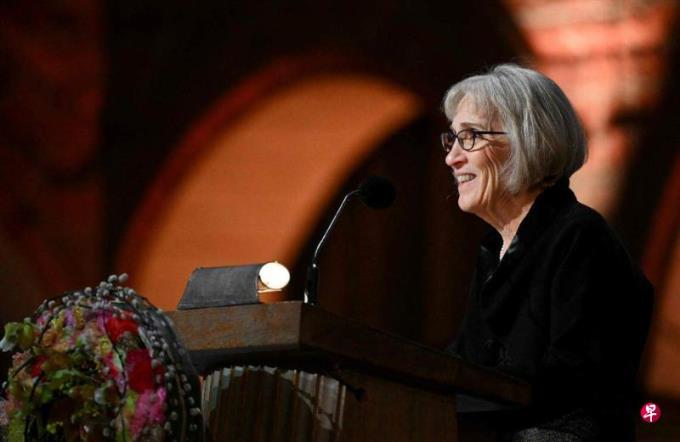
Virtual platforms and remote networks, although provide pragmatic solutions, cannot solve the problem of inequality of the potential system.On the contrary, all institutions should give priority to the comprehensive support mechanism for promoting gender equality.Some best practices include flexible work arrangements, and family policies such as Toru services.
I carried out a project that recorded the academic journey of Singapore senior female scholars in Singapore a few years ago.Nearly half a century ago, only one university in the local area was purely teaching.Although the academic community is similar 50 years ago, it is different.Similarity lies in the female scholars at the time, as today, they need to take into account work and family; the difference is that some of the current expectations for female scholars do not exist that year, at least different requirements.Teaching universities do not require high requirements for research and accompanying cross -border exchanges.But today scholars are in a world with a strong liquidity, and cross -border flow has become necessary.If I have experienced my experience in the academic world over the past 30 years, compared with the experience of 20 years than my senior, the key difference is the contribution of regional liquidity to career development.
No matter where they are, scholars are facing the pressure of achieving international academic excellence standards.In fact, the expectations of international standards, and the regional liquidity required for the goal, have a different degree of influence on the academic community in many regions of the world.
For scholars in most regions of the southern hemisphere, the need for stepping stalls needed to enter the academic community is often a doctoral degree in college that is highly respected from the United States, Europe or Australia.Scholars at the initial entry must share research results at the international conference held in the northern hemisphere to gain reputation.For more senior scholars, the indicators of recognition and status are invited to give a keynote speech or speak at the conference.Similarly, such meetings are usually held in the northern hemisphere.Those who must conduct field surveys, data collection or research key files are even more inevitable to go abroad.Of course, the concept of cooperating with other people and the "joint author" is also positive and valuable for cross transmission of ideas, which is good for increasing the reference rate.In general, regional flow is a necessary condition for academic success.
For female scholars, the challenge of travel is particularly great.In most cases, due to insufficient support architecture (such as childlike services), some women may choose to postpone or abandon such opportunities for such international opportunities.Older care also challenges.After all, some international conferences may provide nursery services, but female scholars cannot always bring old and weak family members to attend the meeting.
In 2019, in an interview with Chinese female scholars, we realized that at the stage of doctoral courses, the choice of location was significantly affected by gender specifications in the cultural background.Although we realized the benefits of overseas doctoral courses for career, some interviewees felt that it was necessary to put family obligations on professional ambitions, and chose to accompany their partners, instead of crossing the ocean and studying abroad.
In addition, even if left -behind, female scholars must face a bunch of challenges.When you need to travel more frequently or to participate in international conferences and cooperation projects farther, you may cause severe interference to family life and schedule arrangements. You need to sacrifice the time to coexist with your family, and may even miss the child's growth milestone.
Even if you teach at university, female scholars may face logistics challenges.For example, those who work on a distributed campus take a few hours to commute to participate in face -to -face activities.If the schedule is not flexible, it may conflict with the care responsibility or school holiday, causing financial and emotional distress.
Today, the highly interconnected world has brought about some of these gender inequality.Digital academic exchanges performed through the virtual and collaborative platform can surpass traditional knowledge communication and audience participation models.Innovative practical methods such as data visualization and online collaboration enable researchers to participate in knowledge creation and dissemination more extensively.Scholars can use the digital platform to explain the research results to the global audience, thereby increasing their popularity and influence in the academic world.Digital platforms can also promote more cooperation opportunities among different background researchers.
But the virtual platform is still unable to completely replace face -to -face interaction and instant communication.Therefore, the limitations of regional flow have limited the successful career of female scholars to establish a successful career.
The European Commission pointed out that despite the increasing doctoral degrees and post -doctoral women in the past 20 years, the proportion of women who have served as senior academic and decision -making positions are still too low.
To narrow these gaps, not only the technological intervention is needed.Although virtual platforms and remote networks provide pragmatic solutions, they cannot solve the problem of inequality of potential systems.On the contrary, all institutions should give priority to the comprehensive support mechanism for promoting gender equality.Some best practices include flexible work arrangements, and family policies such as Toru services.
A vibrant, diversified and influential academic community is an area where everyone can speak and grow.Unfortunately, the academic world is far away from this utopian.
The author is the president of Singapore Management University (Chinese translation is provided by the new big)




